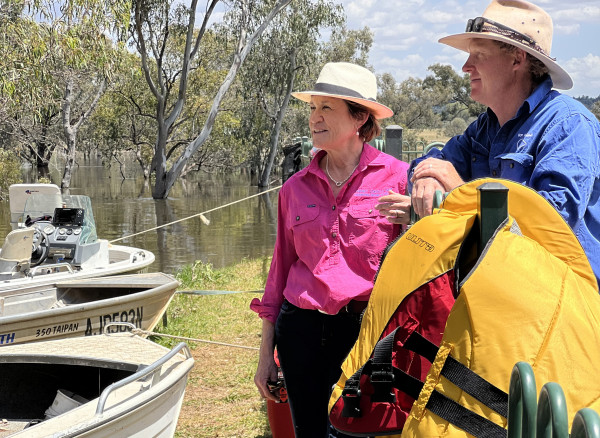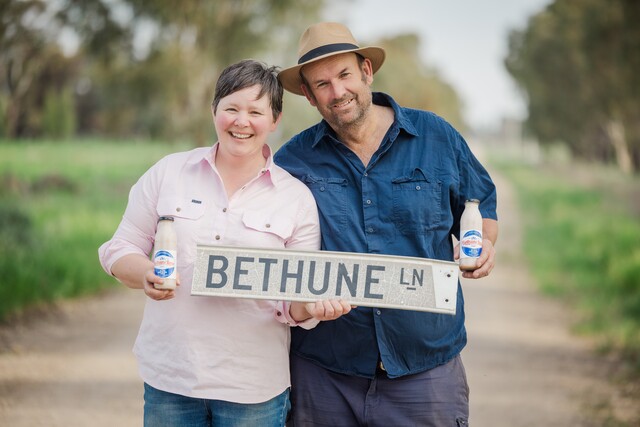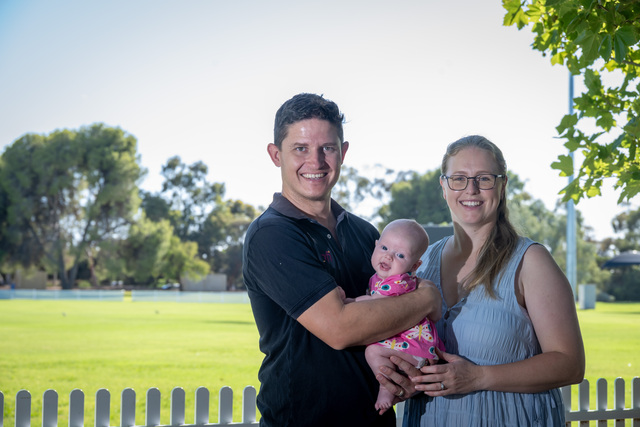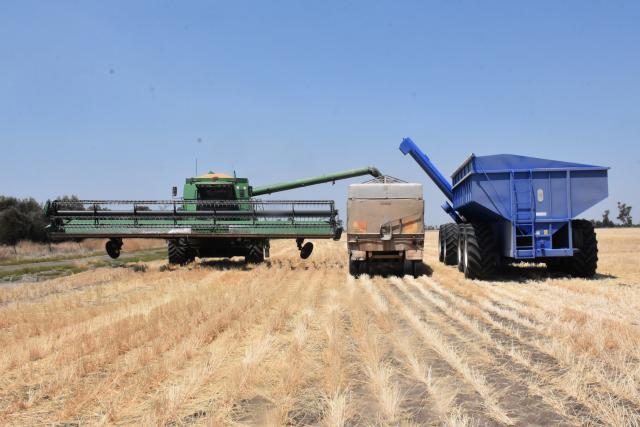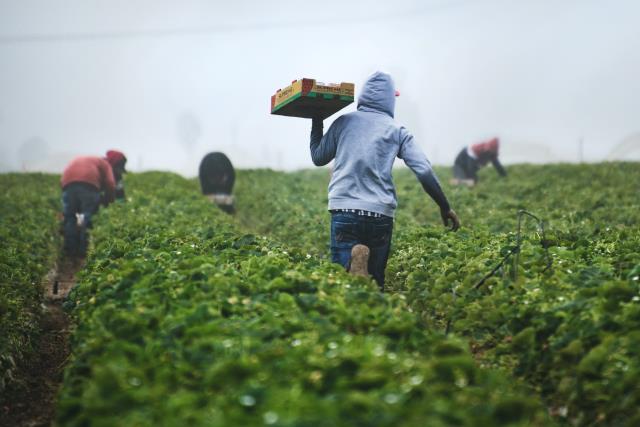When the Lachlan River peaked in November, the floodwater that hit Wallanthery was unprecedented.
The race was on as the community scrambled to save homes, infrastructure and crops.
And for farmer Will Storrier, it has been a hectic and stressful month as he battled to save what he could – his home, his parents’ home and those of his neighbours, while also trying to harvest what remained of what would have been a bumper spring season.
A sandhill in the middle of the irrigation area has proved to be one of the only dry spots in what is now an inland ocean.
“We were able to put our harvested cotton on the sandhill. Where the cotton was originally sitting, has disappeared under so much water we couldn’t even touch the ground with the oar when we boated across the paddocks,” he says.
Being proactive helped reduce some of the losses, but the Storriers, like the rest of the Wallanthrey community, will be feeling the financial burden from this flood for a long time to come.
“Luckily for us, we took the header in early before access was cut off,” Will adds.
“We were able to get our neighbour’s canola crop off just hours before their levee broke and their farm was inundated.
“This couple had only recently purchased the property, so at least they were able to harvest something,” Will says.
He says the English backpackers who have helped with this year’s harvest will certainly be able to go home with some interesting stories of their experiences, including massive sandbagging across the district, cut-off roads, boating in the groceries, no power and, of course, floodwater as far as the eye can see.
“The clean-up costs will be huge. Not only have we lost crop, we have lost fencing, earthworks, road infrastructure and our ability to grow a summer crop.”
With the roads out of action, Will and most other local families, has been boating his kids to the bus stop.
“This adds a lot of time to our day when we have to travel upstream in the morning and then pick them up again in the afternoon – they thought it was fun at the start but I think the shine is starting to wear off,” he said.
Like so many other communities, Wallanthery is not alone with its frustrations over the emergency service management of the flood, including ignorance of local knowledge and the lack of reliable and relevant information available, especially around important river data.
“We need to have better telemetry on our rivers and the data needs to be updated regularly and easily available. We have had to rely on people upstream filtering information down and its not good enough,” he said.
Independent Member for Murray, Helen Dalton, who travelled to Will’s farm, and others in the district, says when this disaster is over, she will be pushing for a full review on how floods are managed in the future.
“My office is continually hearing of the disconnect between emergency services and the value placed on local knowledge right across the electorate, communication is also another major issue,” Helen says.
“If people can’t access something as simple and important as relevant river information, the system is broken.
“How are they expected to prepare and protect property?”
She also says the flooding has also highlighted the lack of investment in regional infrastructure, including telecommunications, energy, roads and bridges.
“People have struggled with power and phone outages, cut off roads, dangerous roads and potholes and once floodwater recedes, they will be faced with the cost of rebuilding along with significant financial losses not just for this season, but also next year.
“I will continue to talk to state and federal government about the plight of Murray so we can move forward and rebuild.”

